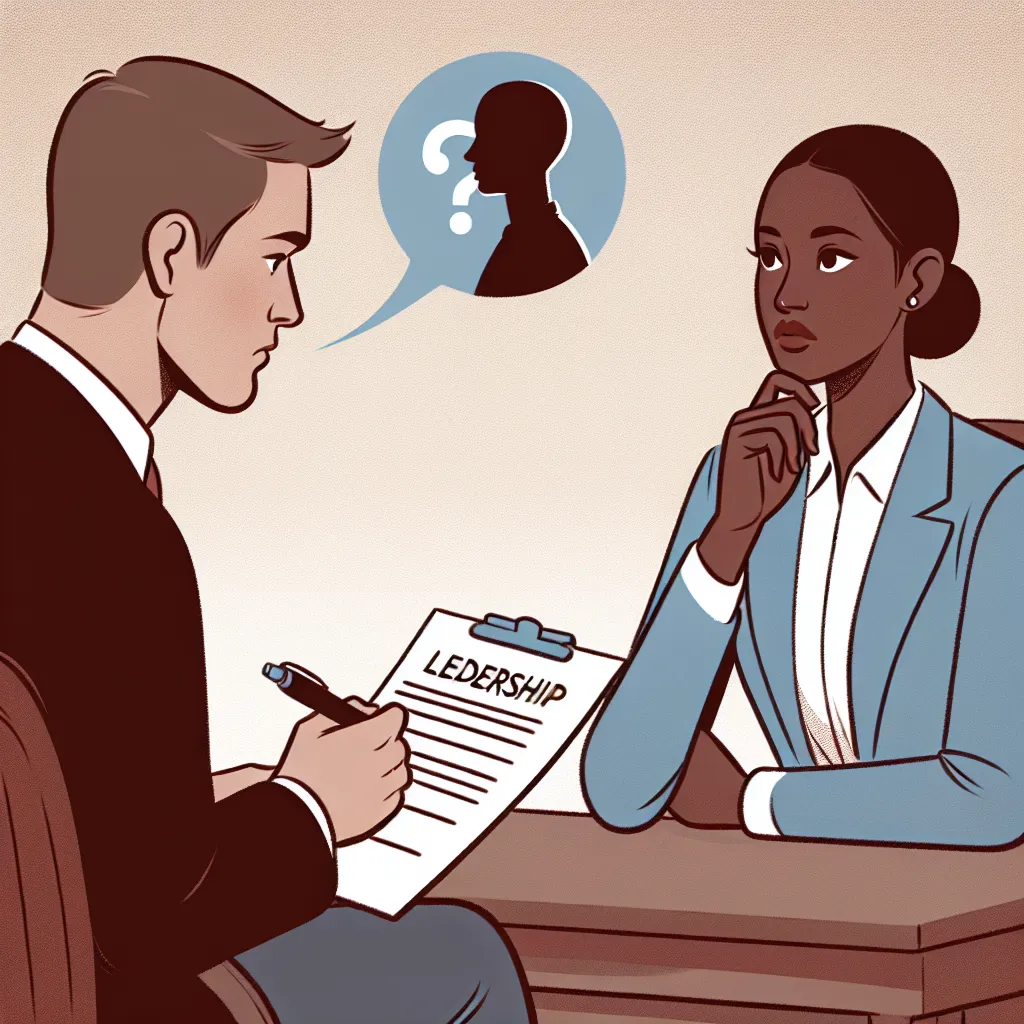Leadership interviews are a crucial step in advancing your career and securing top-level positions. Whether you’re aiming for a managerial role or an executive position, proper preparation is key to showcasing your leadership abilities and impressing your potential employers. This guide will walk you through the essential steps to prepare for a leadership interview, helping you demonstrate your skills and stand out from other candidates.
Understanding Leadership Interviews
Leadership interviews are designed to assess your ability to guide, inspire, and manage teams effectively. They differ from standard job interviews by focusing more on your strategic thinking, decision-making skills, and ability to handle complex situations. Employers use these interviews to gauge how well you can lead their organization towards success.
What Employers Look for in Leadership Candidates
When evaluating leadership candidates, employers typically assess:
- Strategic vision
- Decision-making abilities
- Team management skills
- Communication prowess
- Problem-solving capabilities
- Adaptability and resilience
Understanding these key areas will help you tailor your preparation and responses during the interview.
 Leadership Interview Preparation
Leadership Interview Preparation
Preparing for Your Leadership Interview
Research the Company and Role
Before your interview, conduct thorough research on the company and the specific leadership role you’re applying for. This includes:
- Studying the company’s mission, values, and recent achievements
- Understanding the industry trends and challenges
- Analyzing the job description to identify key leadership qualities required
This knowledge will help you tailor your responses and demonstrate your genuine interest in the position.
Reflect on Your Leadership Experience
Take time to reflect on your past leadership experiences and achievements. Prepare specific examples that highlight your leadership skills, such as:
- Times when you led a team through a challenging project
- Instances where you implemented successful change management
- Situations where you resolved conflicts or improved team dynamics
Be ready to discuss these examples using the STAR method (Situation, Task, Action, Result) to provide concise and impactful responses.
Prepare for Common Leadership Interview Questions
While every interview is unique, there are common questions you can expect in a leadership interview. Here are some examples along with tips on how to answer them:
-
“Describe your leadership style.”
- Be honest about your approach
- Provide examples of how your style has been effective
- Emphasize your ability to adapt your style to different situations
-
“How do you motivate your team?”
- Discuss various motivational techniques you’ve used
- Highlight your understanding of individual and team dynamics
- Share a specific example of successfully motivating a team
-
“Tell me about a time you had to make a difficult decision.”
- Choose a relevant example that showcases your decision-making process
- Explain the factors you considered and the outcome
- Demonstrate your ability to make tough calls under pressure
-
“How do you handle conflict within your team?”
- Describe your approach to conflict resolution
- Provide an example of successfully mediating a conflict
- Emphasize the importance of open communication and fairness
-
“What’s your vision for our company/department?”
- Show that you’ve done your research on the company
- Articulate a clear and achievable vision
- Align your vision with the company’s goals and values
Develop Your Own Questions
Preparing thoughtful questions for your interviewers demonstrates your interest and engagement. Consider asking:
- “What are the biggest challenges facing the leadership team right now?”
- “How does the company support the professional development of its leaders?”
- “Can you describe the company’s approach to innovation and change management?”
These questions show that you’re thinking critically about the role and its impact on the organization.
Common Mistakes to Avoid in Leadership Interviews
To ensure you present yourself in the best light, avoid these common pitfalls:
- Being overly confident or arrogant
- Failing to provide specific examples of your leadership experience
- Neglecting to show empathy and emotional intelligence
- Focusing too much on individual achievements rather than team successes
- Not demonstrating knowledge of the company and industry
Instead, aim to balance confidence with humility, provide concrete examples of your leadership skills, and show a genuine interest in the company’s success.
 Common Leadership Interview Mistakes
Common Leadership Interview Mistakes
Handling Unexpected Questions
Even with thorough preparation, you may encounter unexpected questions. Here are some tips for handling them:
- Stay calm and composed
- Take a moment to gather your thoughts
- Ask for clarification if needed
- Draw on relevant experiences or knowledge
- Be honest if you don’t know the answer, but explain how you would find the solution
Remember, interviewers are often more interested in your thought process and how you handle challenging situations than in perfect answers.
Follow-up Questions and Answers
To further prepare you for a leadership interview, here are some additional follow-up questions you might encounter, along with suggested approaches for answering:
-
“How do you stay current with industry trends and developments?”
- Discuss your methods for continuous learning (e.g., industry publications, conferences, networking)
- Mention any relevant certifications or courses you’ve completed recently
- Explain how you apply new knowledge to your leadership approach
-
“Describe a time when you had to lead a team through a major change.”
- Use the STAR method to structure your response
- Highlight your change management strategies and communication skills
- Discuss the outcomes and lessons learned from the experience
-
“How do you measure success in a leadership role?”
- Mention both quantitative (e.g., KPIs, revenue growth) and qualitative measures (e.g., team morale, employee development)
- Emphasize the importance of aligning team success with organizational goals
- Discuss your approach to setting and tracking goals for yourself and your team
-
“Can you give an example of how you’ve mentored or developed team members?”
- Share a specific example of how you’ve helped a team member grow professionally
- Discuss your approach to identifying and nurturing talent within your team
- Explain how you balance individual development with team performance
-
“How do you ensure diversity and inclusion in your leadership practices?”
- Discuss your understanding of the importance of diversity and inclusion in the workplace
- Provide examples of initiatives or practices you’ve implemented to promote D&I
- Explain how you create an inclusive environment that values diverse perspectives
By preparing thoughtful responses to these types of questions, you’ll demonstrate your readiness for a leadership role and your ability to think critically about complex leadership challenges.
Conclusion
Preparing for a leadership interview requires thorough self-reflection, research, and practice. By understanding what employers are looking for, preparing for common questions, and avoiding typical mistakes, you’ll be well-equipped to showcase your leadership potential. Remember to stay authentic, provide specific examples of your experiences, and demonstrate your passion for leading and developing others.
As you continue to prepare, consider reviewing other relevant resources such as how to prepare for a product owner interview or how to answer questions about decision-making. These can provide additional insights into specific aspects of leadership roles and interview preparation.
Good luck with your leadership interview! With proper preparation and a confident mindset, you’ll be well on your way to securing that coveted leadership position.




